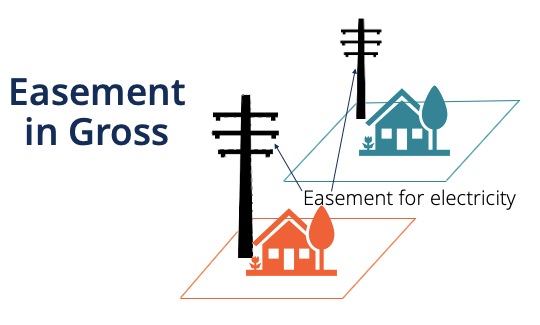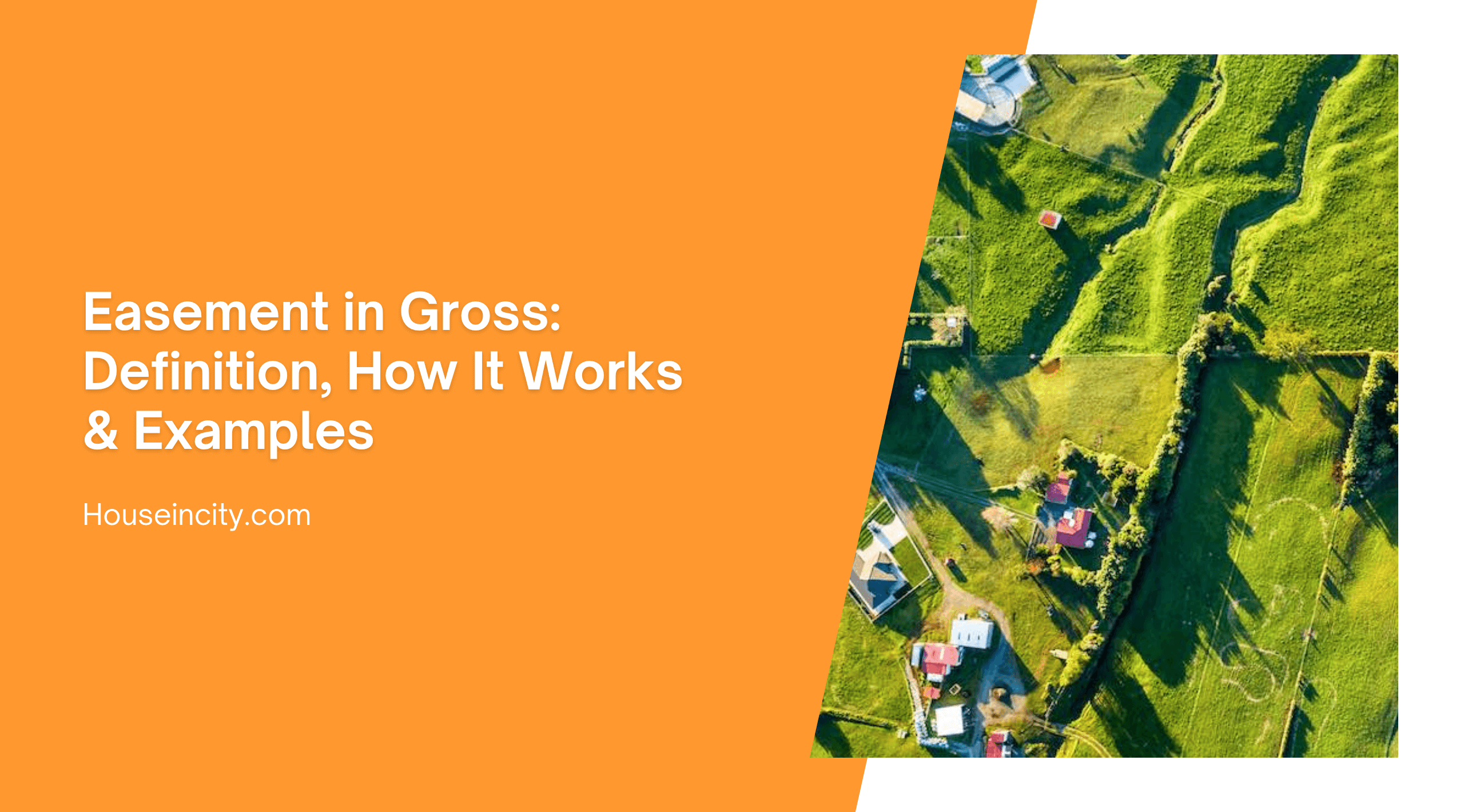An easement in gross is one of the heftiest terms of real estate. Be it a first-time or a regular buyer; it is essential to understand the relevant terminology to understand regulations and easements better.
If you’re a utility company or just a beneficiary looking for properties across the US, this guide will be handy. Stick through to get an overview of this legally hefty term in the most straightforward manner for you.
When it comes to real estate, what is an easement in gross?
Before going ahead with easements in gross, it is essential to understand what an easement is? An easement can be simplified as a legally applicable right for one person to use, enter, or live on the other person’s property without any right to ownership.
In real estate, an easement is an agreement between the two parties. For example, the buyer uses the land of a lender by paying a fee for the same. Take an example of easement in gross with Mr. A, who has a house of his using the land of Mr. B (his Neighbour) for a definite purpose. There are two main types of easements- easements in gross and appurtenant.
Easement in gross definition real estate is very simple to understand how – it is the right of a person to use a part of the land owned by another person for as long as the easement agreement is valid or the owner of the land is alive. You will better understand the term with the relevant easement in gross example ahead, but first, recognize how it works.
How does the in gross easement work?
In the case of a common easement, the property is affected during the agreement. However, it is not the case with easement in gross real estate because the property’s beneficiary and owner are involved. Meaning, that if the owner sells the property, then the easement of gross will cease to exist and be termed invalid by the law.
After selling the property, you will sell the ownership rights to a new party, and the beneficiary of the in gross will be affected because a new agreement will be made in this case. It is so because the new owner will not be obliged to allow your usage towards ‘his’ property.
Therefore, easements in gross means selling the rights of a real estate property to a person without making him the legal owner. Its non-transferrable element is that not even the beneficiary cannot transfer his rights to someone else.
On the other hand, if the legal ownership or occupancy is transferred to a person, it comes under an easement appurtenant.
What are some examples of easement in gross?
You will best understand the easement in gross backed with some real-life examples. For example, if your friend loves gardening and your house contains a beautiful garden of flowers and fruits, you will allow him to use that piece of your property for his interest. This way, you both are making use of the property for good.

Not just this, even utility companies can sign an agreement with you to maintain your surroundings. So, for example, let’s say a person A is a technician, and he is in charge of running the underground wiring in your neighbourhood for the electricity pole. Still, some portion of land is owned by a person B; then A will sign an easement with B to use that part by paying a fee.
What are the common types of gross easement applicable in the USA?
These are the common types of easements primarily gross for the well-being of the area –
- Utility easements – In this type of gross easement, a utility company uses a portion of the property for servicing or maintaining the equipment for supplying.
- Pipeline easement – It is also one of the common easements in gross. Here, a pipeline company uses a portion of the land to draw a pipe or sewage channel. They also use it for renovation purposes.
- Land conservation easement – Under this easement, a gross agreement is signed to prevent the owner from taking action against the welfare of the land. One typical example is cutting down the trees for his benefit.
Under what circumstances will the in gross easement be terminated?
The court, in the following situations, can remove the easement in gross –
- A gross easement is applicable for limited and reasonable use. If it is used beyond that limit, then the court has the right to cease the agreement. If the land is provided on an easement for a commercial building, but new highways or malls are crowding beyond the limit, then the case can reach a lawful body.
- Only one person is the property owner, so technically, he is responsible for the maintenance costs, but sometimes the neighbours agree to share the expenses. However, if they back off after the agreement, the law can terminate the easements in gross.
- Suppose the owner is interfering with the benefits of the easement holder. Therefore, the same action is taken against him by the court by terminating the agreement and compensating the beneficiary.
- If the type of easement is not specified in the agreement, it is automatically considered an appurtenant easement in the eyes of the law.
Therefore, it is vital to abide by the rules if both parties don’t want the easement termination.
Bottom line
Easement in gross is a common type of easement in the real estate world. It simply means transferring a portion of land to someone for limited use without making him the owner. It is a compromise between the two parties, propriétaire and buyer, when the latter wants to monetize his land when he continues to enjoy the benefits of the land.
The agreement contains all the easement details and limitations for both parties. This type of easement doesn’t affect the land because if we assume your parents are the owner of the land you’re sharing, they have the right to sell it, and the easement holder will no longer enjoy the benefits.
We hope you’ve got a clear overview of a gross easement with examples.
